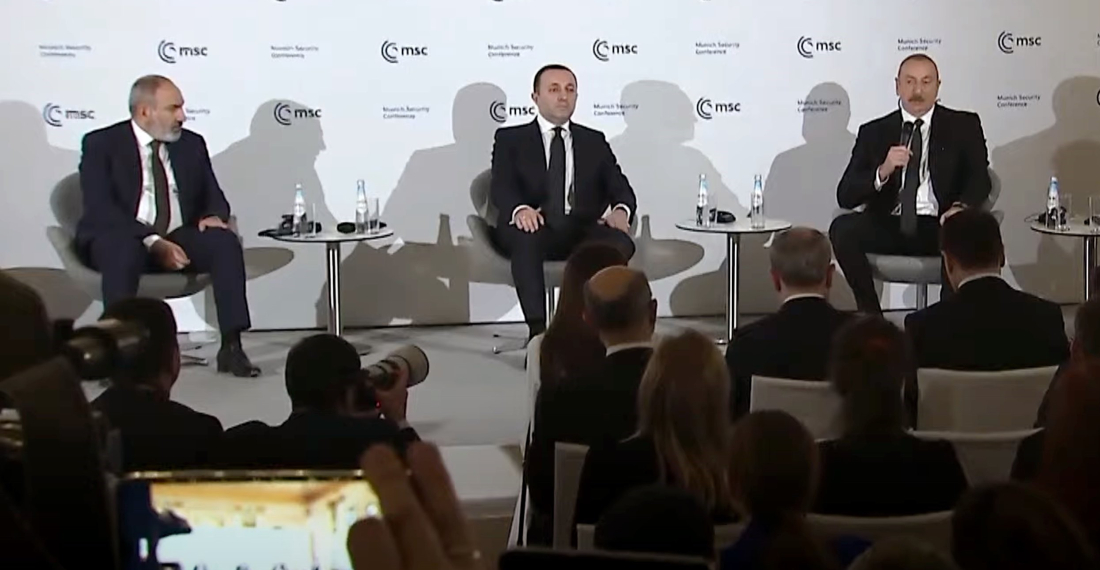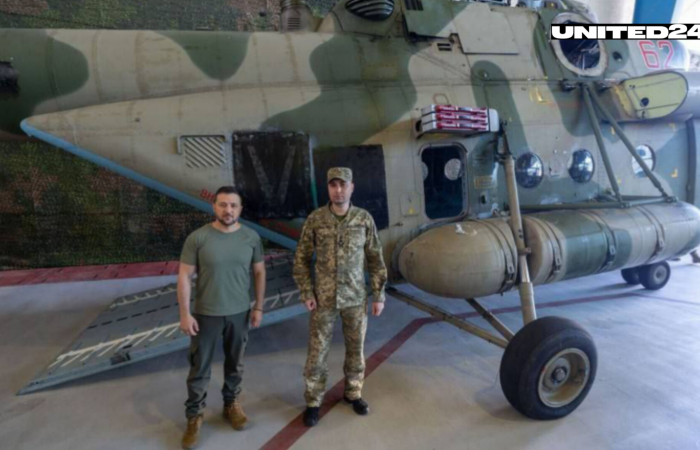The leaders of the three South Caucasus countries made a rare joint appearance at the Munich Security Conference this weekend, to outline their vision for the future of the region.
There was a certain awkwardness in the air as Ilham Aliyev of Azerbaijan, Nikol Pashinyan of Armenia and Irakli Garibashvili of Georgia answered questions put by the moderator, Christoph Heusgen, during a panel entitled "Moving mountains, building security in the South Caucasus".
The moderator further complicated things when he described the event as a historic first meeting of the leaders of the three South Caucasus countries. An appearance at the same event can hardly be called a meeting. Despite this however, the appearance of the the leaders together is a rare event, and augurs well for future regional co-operation which up to now has been largely non-existent.
On the margins of the Munich conference, president Aliyev and prime minister Pashinyan also had a face to face meeting in a gathering hosted by the US Secretary of State Antony Blinken. After a hiatus of several months it now seems that the peace process between the two countries is starting to gather pace again.
source: commonspace.eu with agencies
photo: The leaders of Armenia, Azerbaijan and Georgia made a rare joint appearance when they addressed a panel at the Munich Security Conference on Saturday (18 February).






